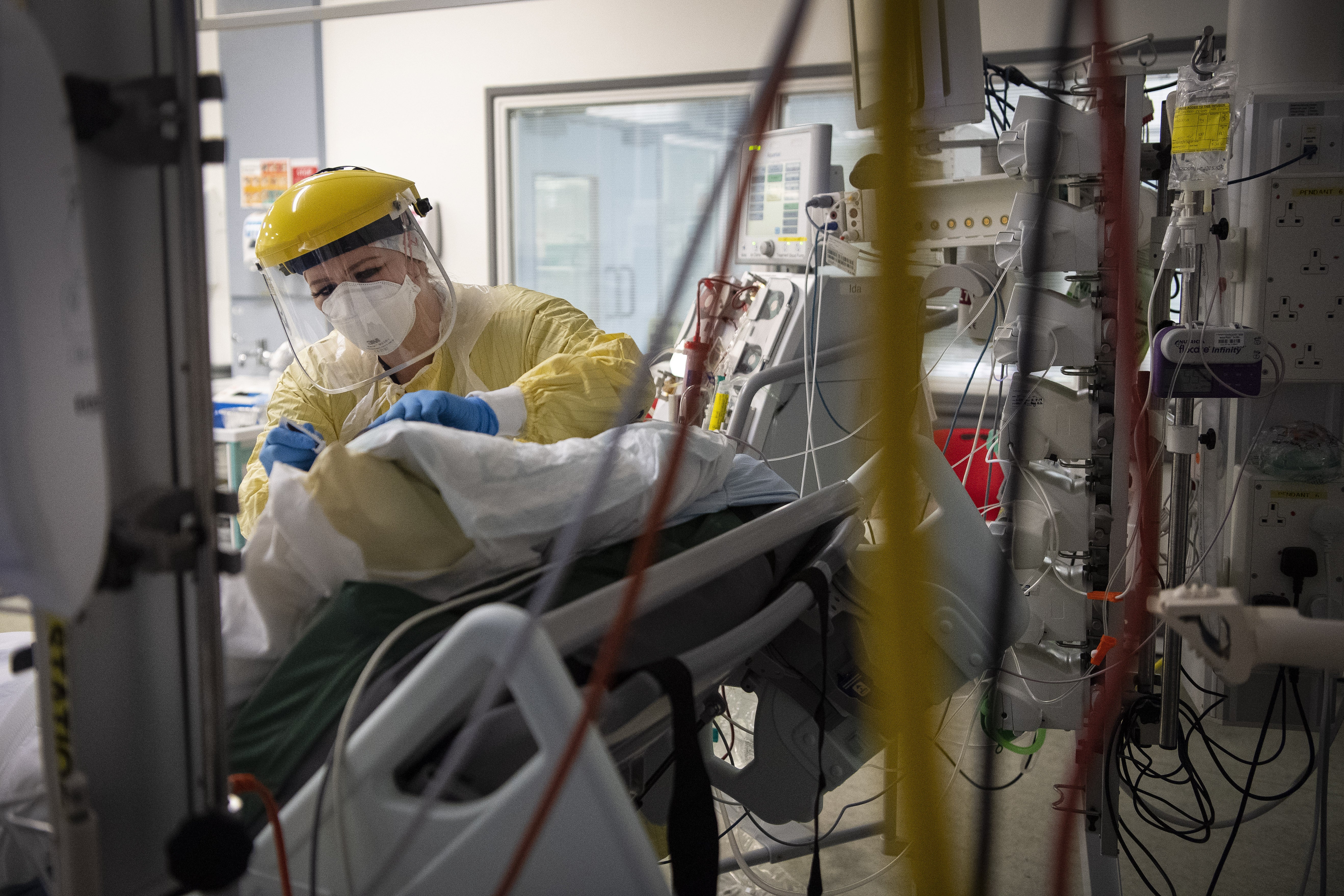Covid-19 linked to impaired heart function, research finds
Researchers said the findings could change future heart and lung treatment.

Covid-19 is associated with impaired function of the right side of the heart, a new study of intensive care patients has found.
The research, led by experts from NHS Golden Jubilee, aimed to help improve future care and outcomes for those most at risk from Covid-19, by gaining a better understanding of the impact the virus has on the sickest patients who require invasive ventilation.
The Covid-RV study was carried out in 10 intensive care units across Scotland and examined 121 critically ill patients who were receiving treatment on ventilators due to the impact of coronavirus on their system.
Researchers found that about one in three of the patients in the study showed evidence of abnormalities in the right side of the heart – the area that pumps blood to the lungs.
A combination of factors create the perfect storm for Covid-19 to damage the right side of your heart, which ultimately can cause death
Nearly half (47%) of ventilated patients in the study died because of Covid-19, a figure comparable to national and international death rates.
Dr Philip McCall, lead author of the study and consultant in Cardiothoracic Anaesthesia and Intensive Care at NHS Golden Jubilee, said: “A combination of factors create the perfect storm for Covid-19 to damage the right side of your heart, which ultimately can cause death.
“If you’re pumping blood to the lungs and the lungs become very sick, you have an additional problem because the lungs are not willing to receive blood.
“This is a very difficult condition to spot, unless you are specifically looking for it. That is why the results of this study are so important.
“We now know that Covid-19 is a problem associated with not just ventilation, but can affect the heart.”
Experts at the NHS Golden Jubilee University National Hospital in Clydebank, West Dunbartonshire, said that the findings could play a vital role in not only saving the lives of Covid-19 patients, but for the care of potentially fatal heart and lung issues generally, as well as helping prepare for any possible future pandemic.
The Covid-RV study was carried out in a significantly accelerated timeframe.
Traditionally, such studies would take at least a year just to plan, however, due to the pandemic and the importance of the findings, the research was successfully completed in six months and three weeks, from September 2020 to March 2021.
Dr Ben Shelley, chief investigator of the study and consultant in Anaesthesia and Intensive Care at the NHS Golden Jubilee, said: “The study has revealed that there is no doubt Covid-19 affects the heart and has a major impact on outcomes for the patient.
“However, now that we know this actually happens, and have a better understanding of how it affects people, we can plan for the future and put in place new care plans and treatments to help combat this.
“For example, ultrasound scans can be used differently to focus in on early warning signs and areas we now know to be at risk.
“If we are able to see these warning signs early enough, clinicians can explore the causes of any complications and start new treatments as soon as possible, potentially improving outcomes for the sickest patients with Covid-19.
“This kind of knowledge is invaluable, not only in combatting any future waves of Covid-19, but in planning for future pandemics to allow people to be treated more effectively.”
The study is published on Tuesday in the journal Anaesthesia.
Bookmark popover
Removed from bookmarks